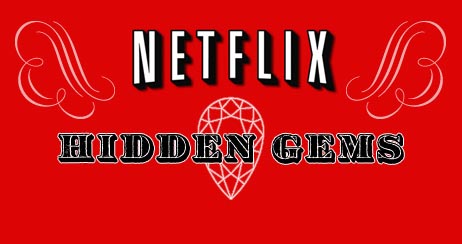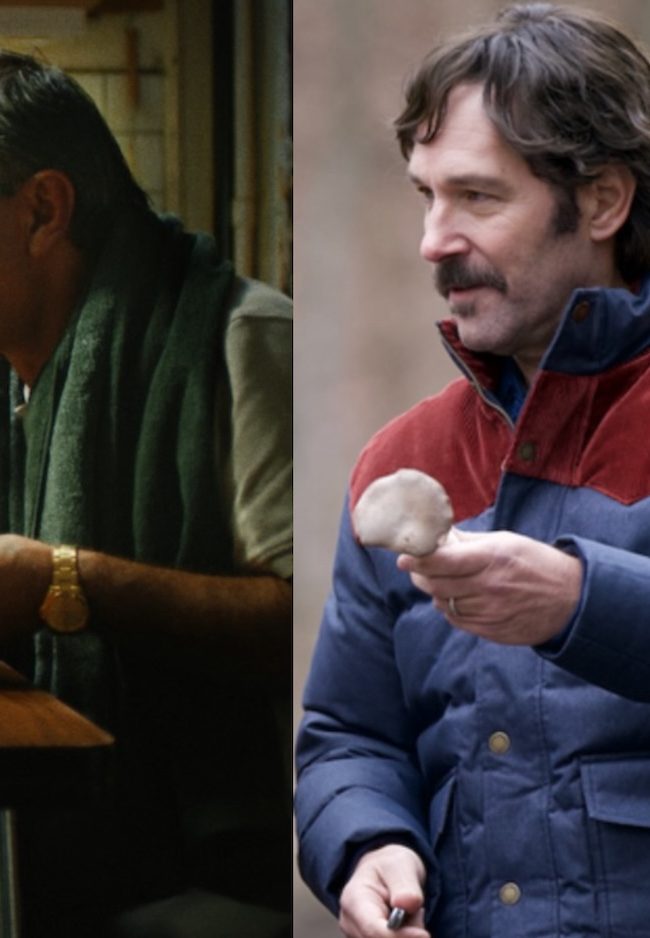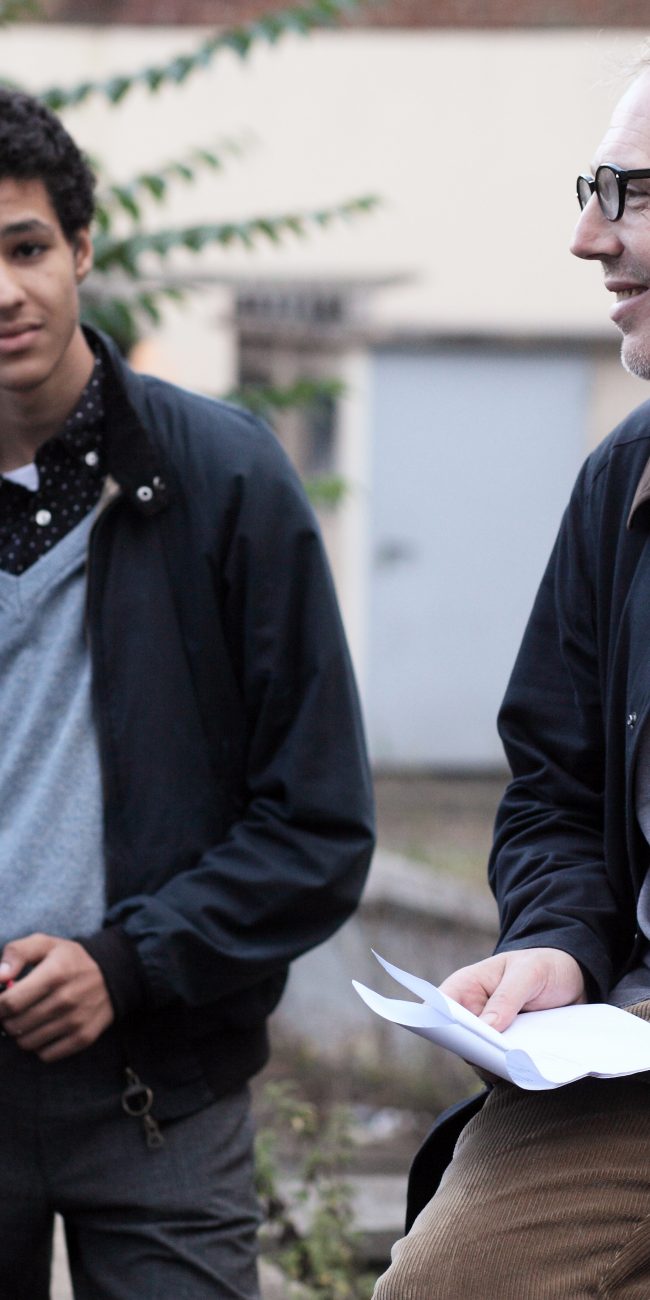NETFLIX HIDDEN GEMS: Issue #4
Has that time of the month come yet again? ‘Tas, by golly. Get to queuein’, cinemisters and cinemisses:

***ISSUE #4: NOVEMBER ‘09***
Jonestown: The Life and Death of Peoples Temple (2006) — Stanley Nelson’s brilliantly executed documentary shows how one man can persuade 900 people to commit mass suicide by drinking cyanide-laced Kool-Aid in the jungles of Guyana (it’s where the saying “he/she has obviously drunk the Kool-Aid” comes from). This profile of Jim Jones tries to penetrate the mysteries of that epic tragedy and is a stunning post-mortem portrait of the demented preacher. Incorporating never-before-seen footage and audio accounts of two Jonestown survivors, Nelson uses this seminal event as an abject lesson in the lengths human beings will go to recreate an Edenic spot on Earth for themselves and their families. (Pamela Cohn)
The Chateau (2001) — Jesse Peretz’s improvised comedy tells the story of two American brothers (Paul Rudd and Romany Malco) who inherit a French Chateau—along with its equally French staff (including Sylvie Testud). Rudd and Malco are now comedy stars in the Apatow stable and this film has got to be a big part of the reason. Peretz lets his stars fly their freak flags high, riffing off each other in a film that’s equal parts Mumblecore and Duck Soup. (Lena Dunham)
Habit (1996) — Still got some of that Halloween candy leftover? No problem! Relive the holiday by popping in Larry Fessenden’s realist re-working of the vampire genre about a man (played by Fessenden) whose life literally and figuratively drains away after meeting a mysterious woman. The location shooting around the Lower East Side is astonishing, perfectly capturing that gritty sense of urban beauty, as well as preserving a cityscape that is barely recognizable sixteen years later. (Cullen Gallagher)
Straight Time (1978) — Fresh on the heels of his high profile roles in All the President’s Men and Marathon Man, Dustin Hoffman decided to take a detour from a Hollywood script and make a gritty, low budget drama called Straight Time. Hoffman gives one of the greatest performances of his career as Max Dembo, a paroled felon living under the thumb of a corrupt parole officer. While Max wants to live on the straight and narrow, the humiliations of the work-a-day world and the temptations of the easy score force him to battle his inner demons. Unconscionably underseen since its release in 1978, and the subject of a fascinating story of Hollywood ego and intrigue in the production process (read more on that here), Ulu Grosbard’s film is an unflinching slice of 1970s brilliance, exactly the type of engrossing, character driven film that simply does not get made anymore. Go get ‘em. (Tom Hall)
Zabriskie Point (1970) — A singular anomaly in the American and Italian cinemas, Zabriskie Point, Michelangelo Antonioni’s first and last American film, is a radical departure from the director’s previous work, a deeply imperfect work that nonetheless brilliantly highlights, both in its thematic incoherence and aesthetic indecisiveness, the still irresolvable ideological conflicts that arose on American streets, university campuses, Capitol Hill and suburban living rooms during the 1960s, that place where all the 20th century’s founding myths went to die. Three reasons to see it: Desert orgy scene; Harrison Ford cameo as a locked up student protester; Pink Floyd scored ending, which features more explosions than Joel Silver could ever dream of. It’s the most definitive metaphor to date on the death of the ’60s ethos. (Brandon Harris)
Esther Kahn (2000) — Arnaud Desplechin’s whirling, hallucinatory Victorian drama is the best film ever made about acting. Summer Phoenix delivers a brilliant, commanding performance as Esther, a London shop girl overcome with ambition to be a successful stage actress. Esther’s tendency towards cold disaffection is keeping her from realizing her talents, until heartbreak, unhappy sex, self-mutilation and the filthy streets of London begin to stir up her passion. Not for the faint of heart, Esther Kahn is a cinematic treasure and one of Desplechin’s very finest—yet, sadly, most often overlooked—films. (Holly Herrick)
Ace In The Hole (1951) — Maybe it’s not exactly “hidden” anymore, but it’s a gem that was only recently unearthed: this Billy Wilder masterpiece (a flop upon its original release) was hard to see for decades, until it got the Criterion treatment in 2007. Kirk Douglas plays Chuck Tatum, a big-city newspaper reporter who, after burning one bridge too many, gets stuck cranking out local-color copy for a tiny rag in a tiny town in New Mexico. By chance, he stumbles onto a story he knows can put him back on top: a treasure hunter, breaking into a Native American burial ground, has been trapped in a cave-in and hovers between life and death. Tatum ably manipulates the trapped man, the police, the press, and the public alike—utterly amoral himself, he has expert insight into the self-interest and moral vacuity of others—and stage-manages the story into the biggest headline in the country. Ace In The Hole is thoroughly jaded and misanthropic and witheringly bleak in its worldview, for those who are bothered by that kind of thing; it’s also a hot-dogging hoot of a good time, serving up one killer line of dialogue and one cracklingly tasty scene after another. (Nelson Kim)
Silent Tongue (1994) — This totally mind-numbing and completely fucking absurd Western trip courtesy of Sam Shepard (who does not make an appearance) is almost indescribable. In the nameless American west, Richard Harris plays a doting father whose Injun daughter-in-law dies tragically, leaving the stability of his son (River Phoenix in full-on, off-the-fucking-wall mode) in serious question. I mean it, his performance speaks wonders for the term “out of this world,” as he would be shortly, and, arguably, shamefully, may already have been at this time. Harris can’t deal with his son’s grief so he kidnaps the Squaw’s almost identical half-sister from her father (Alan Bates), who sets off with his son (Dermot Mulroney) in tow to exact revenge or rescue, whichever comes first. Too bad once the replacement woman gets to River’s camp in the desert all he can seem to do is hallucinate and babble and contort his face until you can hardly stand to look. Fortunately, I have a feeling once play is pressed here, you’ll hardly be able to do anything else. Bizarre. (Evan Louison)
Squirm (1976) — Jeff Lieberman’s Worms Gone Wild horror film eschews the nastiness and gore that seemed de rigueur for low-budget ’70s horror in favor of suspense, humor, and the goofball charm of leading man Don Scardino. An unusual and idiosyncratic horror film, definitely not the stinker that MST3K made it out to be. Be sure to watch the director’s commentary—not only is it informative, but the director is just as entertaining and engaging as his film—and listen closely to that lullaby/theme song, “I Can Hear the Dark.” Doesn’t it sound an awful lot like the main theme for a certain modern day Oscar-winner…? (Tom Russell)
The Gods of Times Square (1999) — On the eve of our faux election for mayor, take a look at a New York City that existed before the Republican Pro-Development mayors took over. Richard Sandler’s film documents the last days of Times Square before it was sold out to the national chains in order to put the most amount of money into local developers’ pockets (and our mayor’s pockets: his wealth has quadrupled since he stepped into office). The film follows the Times Square preachers and apocalyptic prophets that used to gather there as they set up their soap boxes in front of old businesses that were shuttered in the name of progress. The film is captivating because the director directly interacts with his subjects. He doesn’t treat them like insane babblers but actively engages them on the foundations of their beliefs. There are anti-white, openly racist black preachers; there is a young white hipster rock-and-roll prophet who thinks he is Jesus Christ and deserves a date with Madonna. The Gods of Times Square is a snapshot from a long lost New York City, before our mayors made it safe for the tourist or the Sex and the City-watching recent transplant to buy without fear from worthless chain stores like the Hershey outlet. Watch it and weep, or at least let it motivate you to vote out our “development-at-any-cost” mayor. (Mike S. Ryan)
Rivers and Tides: Andy Goldsworthy Working With Time (2003) — An inspiration on a multitude of levels, Thomas Riedelsheimer’s patient, restrained, beautifully crafted portrait of Scottish artist Andy Goldsworthy is one of those magical viewing experiences that will enrich your perception of the world. Goldsworthy doesn’t just work in and with nature to make his sculptures; he embraces it wholeheartedly, allowing its uncontrollable force to dismantle his creations, transforming them into something even more connected with the earth. If this sounds hippified and heady, it isn’t. Rivers and Tides is a mesmerizing glimpse into the process of a modern human treasure. (Michael Tully)












Pingback: Hammer to Nail » Blog Archive » SILENT LIGHT in New York City